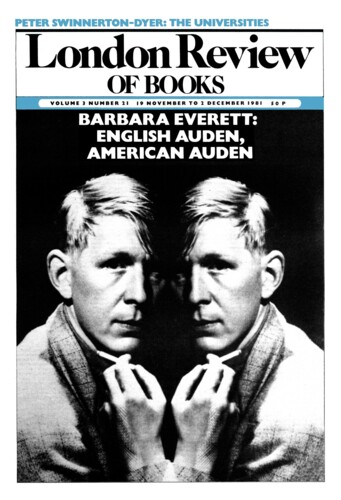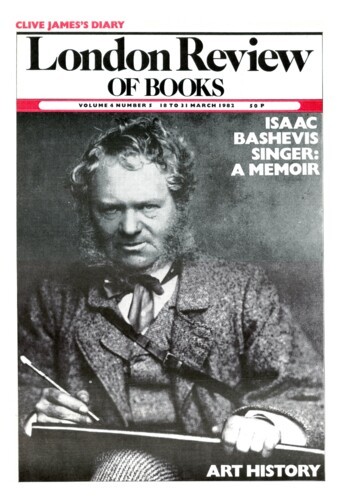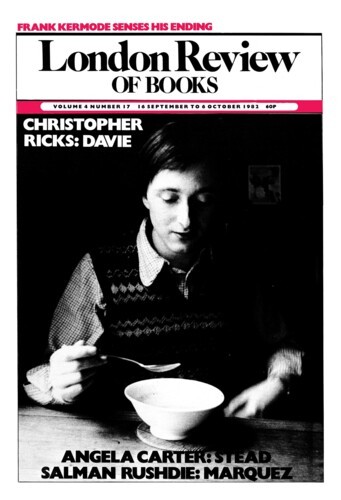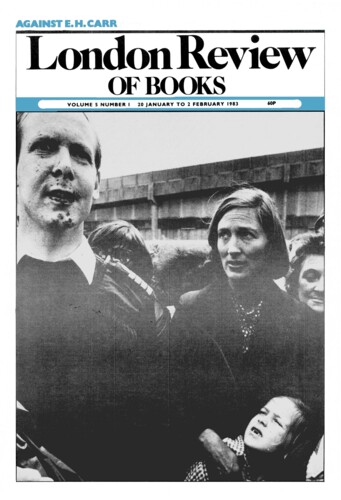Rolling Stone
Peter Burke, 20 August 1981
In the late 1950s, when I went up to Oxford, one of the liveliest and most provocative lecturers in history was Lawrence Stone of Wadham. He was already a controversial figure who had, as we all knew, crossed swords with Hugh Trevor-Roper over the state of the Elizabethan aristocracy and with Geoffrey Elton over the question of Tudor despotism. Stone’s favourite theme at that time was ‘The Coming of the English Revolution’. Looking back from the later 17th century, Lord Clarendon once remarked that he was ‘not so sharp-sighted as those who have discerned this rebellion contriving from (if not before) the death of Queen Elizabeth’. One wonders what he would have made of Stone’s lectures, in which we were taken back to the reign of Henry VIII, and learned as much about population movements and the educational system as about religion and politics. It was the total history of the English old regime which was the true subject of these spell-binding lectures, delivered in the hall of Wadham beneath a large portrait of Lord Birkenhead, towards whom the lecturer would sometimes gesture to provide a latter day example of that typical 17th-century phenomenon, the ambitious political lawyer.





